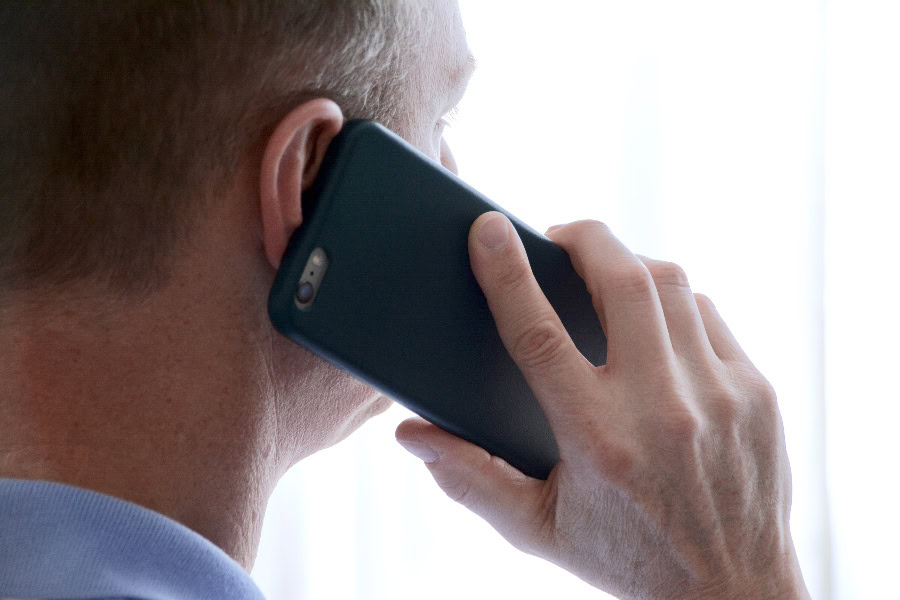Managing Fine & Penalties in New South Wales
In New South Wales, dealing with fines and penalties from various authorities can be complex. Revenue NSW simplifies this process by offering a centralised platform for residents to manage a wide range of infractions, from traffic violations to public transport offences.
Through the Revenue NSW online portal, you can handle penalties related to road rules, disorderly behaviour, and even criminal infringement notices. This official platform enables NSW residents to view, pay, and contest fines, set up payment plans, and check the status of their penalties.
The MyServiceNSW Account further streamlines the process, allowing individuals to access various services related to fines and driving offences in one place. Users can view and manage fines, check demerit points, and request driving records efficiently.
For camera-detected offences, the system offers the option to view related images, adding transparency to the process. This comprehensive approach makes the management of fines and infringements more accessible and efficient for NSW residents, simplifying what can often be a complicated aspect of civic responsibility.
How To Manage Your Penalty Notice Properly?
Effectively managing your penalties in New South Wales is crucial to maintaining a clean record and avoiding escalating legal issues. Whether you’re dealing with a simple traffic fine or a more serious criminal infringement notice, understanding the process and your options is essential.
- Stay Informed: Regularly check your MyServiceNSW account or your mail for any notices. Fines can escalate quickly if left unattended, potentially leading to enforcement orders or even criminal convictions in severe cases.
- Understand the Consequences: Different infractions carry various associated penalties. While most fines involve monetary payments, serious or repeated offences could result in license suspension, property seizure, or even imprisonment.
- Act Promptly: Once you receive a fine, take action immediately. Fines that are paid on time often have lower penalties and prevent the issuance of an enforcement order.
- Know Your Options: If you’re unable to pay the full amount, consider:
- Payment plans: Spread the cost over time
- Community service: In some cases, you may be eligible to work off your fine
- Review or contest: If you believe the fine was issued in error, you can request a review
- Seek Legal Advice: For serious infractions that could lead to criminal convictions, affect your freedom (risk of custody) or even for a license appeal, consult with a legal professional.
- Maintain Compliance: Familiarise yourself with local laws to avoid future infractions. This is particularly important for road rules, public transport regulations, and community guidelines.
- Budget Wisely: Set aside money for unexpected fines or penalties. This can help you avoid financial stress if you do receive a fine.
Remember, the goal of the NSW Fine Check system is to help you manage your penalties effectively and maintain compliance with the law.
Our expert traffic lawyers in Sydney are here to help. Book your free consultation today if you require assistance with your fine. – (02) 8378 8585
Understanding NSW Fines – Traffic Offences
How to Pay NSW Fines

NSW fines are penalties issued for violating regulations or laws, often related to traffic offences. These may include speeding fines, parking violations, drunk driving, and red light camera detections. Fines typically come with specific due dates and amounts owing. It’s crucial to address them promptly to avoid additional penalties or legal issues. Revenue NSW manages the state fine system. They provide several options for handling fines:
- Online payment through MyServiceNSW Account
- Setting up payment plans
- Requesting reviews of fines
- Applying to go to court
Support options are available for those facing difficulty paying. These may include extended payment terms or work and development orders. Red light camera fines can range from $481 plus 3 demerit points. These penalties are enforced under specific Road Rules 2014 (NSW). It’s important to keep personal details up to date with Revenue NSW.
This ensures timely receipt of fine notices and prevents issues with overdue fines. If a fine becomes overdue, additional fees may apply. Revenue NSW offers a dedicated helpline for queries about overdue fines: 1300 138 118. Managing fines online through a MyServiceNSW Account offers convenience. It allows users to view, pay a fine, or query fines in one place, with pre-filled details for quicker processing.
How to Check Your NSW Fines?
Checking NSW fines is a straightforward process with multiple options available. The most convenient method is through online platforms.
Revenue NSW Fine Check
The Revenue NSW Government website serves as the primary resource for fine inquiries and payments. Users can easily access their fine information by entering the required details. For a more personalised experience, residents can utilise their MyServiceNSW account. This secure platform allows individuals to view and manage their fines efficiently.
The Service NSW mobile app offers another user-friendly option. It provides quick access to fine details and payment options on the go. To view images related to camera-detected offences, individuals can use the myPenalty portal. This service is accessible via the Revenue NSW website.
Traditional Method
For those who prefer traditional methods, contacting Revenue NSW directly is an option. Their phone lines are open Monday to Friday, 7 am to 7 pm:
- Fines: 1300 138 118
- Overdue fines: 1300 655 805
It’s important to have relevant information on hand when checking fines, such as the fine notice number or personal details. Remember, staying informed about any outstanding fines is crucial. Regular checks can help avoid penalties and ensure compliance with NSW regulations.
Interpreting Your Fine Information
When reviewing a NSW penalty notice, several key details require attention. The penalty reference number serves as a unique identifier for the fine, which is essential for all interactions with Revenue NSW. The due date indicates the deadline for payment or action. Fines typically offer a 21-day window for response. Failing to act within this timeframe may result in additional fees. Fine amounts vary based on the offence. It’s crucial to verify the exact sum to ensure correct payment.
Offence details provide context, including:
- Date and time of the incident
- Location
- Specific violation
To pay your fine, several options are available:
- BPAY: Use the biller code and reference number on the notice
- Credit card: Pay online or via phone
- Payment plan: Arrange instalments if unable to pay in full
Individuals facing financial hardship may apply for a payment plan through Revenue NSW. This option allows for more manageable repayments over time. It’s important to address fines promptly. Ignoring penalties can lead to enforcement actions, including licence suspension or vehicle registration cancellation.
Payment Options for NSW Fines

Service NSW offers several convenient methods to pay fines.
- Online payment is a popular choice, allowing individuals to settle their fines quickly and securely.
- Credit and debit cards are widely accepted through the Service NSW website. BPAY is another common option, enabling payments via online or mobile banking platforms.
- Phone payments are available for those preferring traditional methods. Simply call the designated number and follow the prompts to pay using a credit card.
- In-person payments can be made at Service NSW centres or participating post offices. These locations accept cash, EFTPOS, and credit cards.
Payment plans are an option for individuals facing financial difficulties. These can be set up by:
- Calling Revenue NSW
- Submitting an online enquiry
- Completing and mailing a Payment Plan Application form
It’s crucial to pay fines promptly to avoid additional costs and potential consequences for legal matters. Those wishing to contest a fine can request a review through their MyServiceNSW Account or by contacting Revenue NSW directly. Remember, early action is key when dealing with fines. Addressing the matter promptly can help prevent escalation and provide more flexibility in payment options.
Dealing with Overdue Fine Notice
When a fine remains unpaid past its due date, Revenue NSW sends a penalty reminder notice granting an additional 28 days to manage the fine. Failure to act within this period results in an overdue fine, which incurs an extra fee of $65 for standard fines or $25 for minor offences.
Individuals facing overdue fines have several options:
- Pay the fine in full
- Apply for a payment plan
- Request a review
- Apply for a fine reduction
- Seek cancellation of the fine
- Apply to dispute the fine in court
Payments can be made online through the MyServiceNSW Account or by calling 13 77 88. This platform also allows users to view fine records, due dates, and outstanding amounts in one convenient location. For those unable to pay, applying to go to court is an option. This process involves submitting a written application to the Local Court. If successful, the court may withdraw the overdue fine and address the original offence.
Seeking legal advice is recommended for complex cases or when unsure about the best course of action. This can also help you eliminate risks. Legal Aid NSW offers guidance on handling overdue fines and navigating the court system. It’s crucial to act promptly when dealing with overdue fines. Ignoring them can lead to more severe consequences, including licence suspension, vehicle registration cancellation, and additional recovery actions by Revenue NSW.
Book a free consultation with our skilled traffic lawyers – (02) 8378 8585
Reviewing or Contesting a Fine
In NSW, individuals have the option to request a review or contest a fine. This process allows for potential leniency or dismissal under certain circumstances. To initiate a review, visit the Service NSW website and select ‘Go to myPenalty’. Follow the prompts to submit your request. Once received, a hold is placed on the fine until a final decision is made.
Valid reasons for review may include:
- Medical emergencies
- Severe personal hardships
- Errors in the fine issuance process
Supporting evidence is crucial when requesting a review. The Review Assist Guide provides examples of acceptable documentation for various fine types.
For traffic offences, consider these tips:
- Ensure you have a valid reason to contest
- Gather strong supporting documentation
- Consider seeking legal advice
Interstate licence holders must provide a certified copy of their 10-year driving record when contesting vehicle-related fines. Individuals with unpaid fines may explore alternative options such as Work and Development Orders. These allow eligible persons to reduce their fine debt through unpaid work, courses, or treatment programs. It’s important to note that contesting a fine in court may result in additional costs if unsuccessful. Carefully weigh the potential outcomes before proceeding with this option.
Nominating Another Driver
In New South Wales, vehicle owners may need to nominate another driver for a fine if they weren’t operating the vehicle at the time of the offence. This process is crucial, especially for offences that carry demerit points.
When to Nominate:
- The offence was detected by a camera
- Someone else was driving your vehicle
- The fine carries demerit points
To nominate another driver, you’ll need to provide:
- Full name
- Address
- Date of birth
- Driver licence number and issuing state/country
- Passport number and country (for international drivers)
It’s important to act quickly, as nominations must be made within 21 days of receiving the fine notice. Failure to do so can result in additional penalties.
Consequences of False Nominations
Falsely nominating another driver is a serious offence. Individuals face fines up to $11,000, while companies may be penalised up to $22,000. Additionally, your driver’s licence could be suspended or revoked. If you’re unsure about the nomination process or need assistance, contact Service NSW on 1300 138 118. For legal advice, call 1300 888 529.
Remember, you can’t nominate another driver if:
- You received the fine in person
- The offence wasn’t detected by a camera
- The nominated person has already taken responsibility
Accurate driver nomination ensures that the right person is held accountable for traffic offences, maintaining the integrity of the road safety system.
Legal Options and Court Proceedings
Going to court is an option for individuals who wish to contest their fines in NSW. This process allows for the opportunity to present one’s case before a magistrate.
Reasons to consider court proceedings include:
- Believing the fine was issued incorrectly
- Having a valid excuse for the offence
- Feeling the penalty is too harsh
Before attending court, it’s crucial to confirm the date, time, and location. This information is typically found on the Court Attendance Notice. For those needing language assistance, interpreters can be arranged by contacting the court registry at least two weeks prior to the hearing date. Subpoenas may be issued to secure necessary documents or ensure witness attendance. If more time is needed, an adjournment can be requested. It’s important to note that choosing to go to court can result in:
- The fine is being upheld.
- A reduced penalty
- The fine being dismissed
- Additional court costs
For individuals struggling to pay their fines, options are available. The Local Court offers a ‘Time to Pay’ application, allowing for instalment payments. Generally, instalments below $100 per fortnight are not accepted without exceptional circumstances. Legal Aid NSW provides resources to help navigate the fines system, including guides on dealing with fines and contact information for support services.
Organise a free consultation with our traffic law team – (02) 8378 8585
Stay Informed, Stay Compliant: Managing Your NSW Fines Effectively

Effective management of NSW fines requires a proactive approach. Motorists can check their fine status through various channels provided by Service NSW and Revenue NSW. The MyServiceNSW Account offers a convenient way to manage fines online. Users can log in or create an account to view and pay fines, check demerit points, and request driving records. This system handles everything from minor infractions to more serious offences that could potentially lead to a criminal conviction if left unaddressed.
For those without a MyServiceNSW Account, the Revenue NSW website provides alternative options. These include online portals and phone services for managing fines and overdue payments. It’s crucial to keep personal details up to date with relevant authorities. This ensures timely receipt of fine notices and reminders.
NSW residents can access support services if they’re facing difficulties paying fines. These may include payment plans or extensions in certain circumstances. By staying informed and addressing fines promptly, motorists can maintain compliance with NSW traffic laws and avoid more serious consequences.For more information and insights, read our related blogs: Drink Driving Penalties NSW – What Are They? Penalties, Defences, and Charges & Driving With A Suspended Licence: Legal Implications




